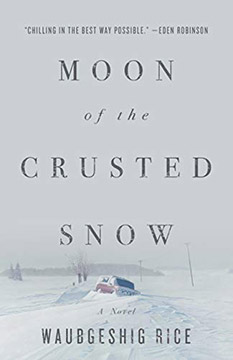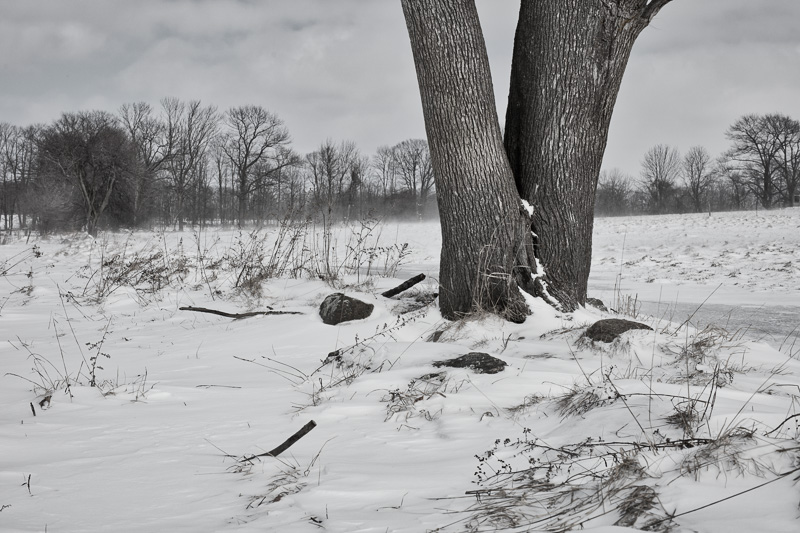
Moon of the Crusted Snow, by Waubgeshig Rice (ECW press) came to my attention with the life-imitates-art story on the CBC of a Quebec couple who drove to Whitehorse then flew from there to Old Crow, the Yukon’s northernmost community. The reason for their trip was fear of Covid-19; they thought they’d be safe by fleeing to the most remote place in the country. As part of the Vuntut Gwitchin First Nation, Old Crow is a town of 250 people without the resources to accommodate strangers (who hoped to work there) and to address the extreme health care needs which might arise with exposure to Covid-19 from outsiders. The couple was asked to leave and did so without incident. People drew a connection between this news story and a plot point in Waubgeshig Rice’s novel with the result that it has attracted renewed interest from people like me since its 2018 publication.
Moon of the Crusted Snow tells the story of a northern Anishnaabe community as winter approaches. The Anishnaabe have no ties to this land as they have been displaced form more southerly regions around the Great Lakes. Only now are they recovering a sense of rootedness, just as only now are they recovering their language and traditions taken from them through the trauma of residential schools. However, a fresh wave of colonial habits have made incursions into the community, a power line, cell tower, and TV and internet connections. While some, like Evan Whitesky, have learned agin how to hunt and put food by for the winter, most prefer to rely on the Northern Trading Post owned by a large grocery chain.
By small increments, the community’s connections to the south get cut off. First to go is the internet. Next is the cell service. Finally, they lose power. School has to be cancelled and the immediate concern is how to amuse rambunctious children. Although the reservation still has diesel generators from its earlier days, and a secret cache of emergency provisions, residents won’t listen to official assurances. They can’t make calls so they have no idea how long power will be out. Panic takes hold and, in an all-too-familiar scenario, residents clear out the shelves of the Northern Trading Post. If only Rice had included a fight over toilet paper! The weather turns and the isolation begins.

One day, Evan Whitesky hears approaching snowmobiles. Two local boys studying in the south have stolen snowmobiles and made the trek back home. They bring news that the collapse of the power grid and loss of phone and internet services is part of a more widespread crisis. Rice never specifies the crisis so readers are free to imagine whatever they like. For my part, I imagine a pandemic, although that might seem improbable.
The community suffers. As is typical, people die during the tough months of winter. There are the suicides and accidents endemic to such communities, and there are those who die of natural causes. However, the bodies can’t be interred until the ground thaws. Evan Whitesky and his friends stack the bodies in a shed that serves as a makeshift morgue. Again, given reports from Lombardy and Manhattan, Rice offers up an all-too-familiar scenario.
And then we have the arrival of the stranger from the south, a white man named Justin Scott who has decided it would make sense to live on a reservation where people are more practised in the art of basic survival. The community proves a bit of a disappointment seeing as most haven’t got enough wild meat laid by on their own account and have to rely on the secret cache that the chief and his cronies dole out. Justin Scott has other ideas about survival and gathers to himself a few disenfranchised native youth. He and Evan Whitesky fall into a conflict that leads to a macabre confrontation. What began as a straight up novel of survival in difficult times takes a surprising step sideways to assume its place in the dystopian/southern gothic tradition.
This is an entertaining read that should take the better part of an afternoon to finish.